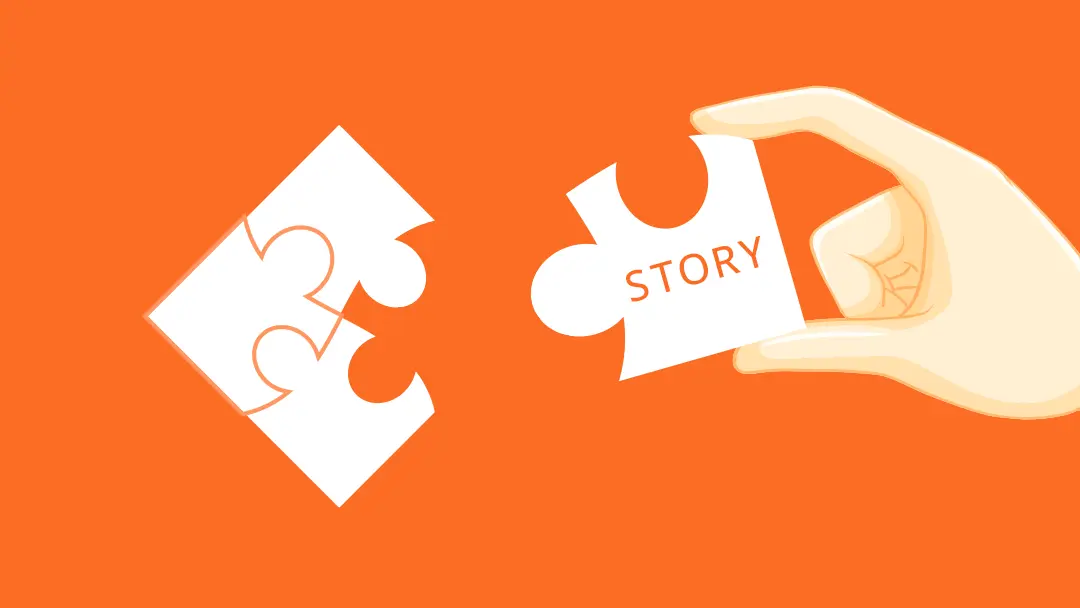Motion Design is a continuation of an ancient art of storytelling, a powerful tool for sharing experiences, thoughts and emotions across generations. It can be used not only for entertainment but also for explaining complex messages in a visually simple form. It’s easy to get into animation complexities, with a simple message. But to guide the narrative towards the connection and understanding with your audience it’s still needed to have a well organized and clearly planned story of your inner message to the world.
There are many approaches in motion design to express what you feel, develop thoughts and bring it all in a delightful way to your audience. Stop motion, animation, mixed media, visual effects, video stories. Experimenting and taking some risks with storytelling can bring surprising results. Attention immediately brought by fun and enjoyable, colorful visuals. But this eye-candy should be given already at some most interesting, and important moments to catch the viewer for a longer period of time. Because at the end the story will be evaluated by the meaning and uniqueness of the thought.
Finding what resonates with the audience can be an incredibly hard task. It’s important to have a realistic goal before you start a creative process. Instead of focusing on fun, it may be more rewarding to find informative and educational ideas for the story. This will bring a clearer understanding of how emotionally powerful the story was. Rather than fake-empowering the statistics with the meme jokes.
Universal story requires some research and careful consideration of finding proper elements, relatable and meaningful for many of us, humans. Lion-king scenes hit emotionally even dogs, maybe you’ve seen these videos. Senses are universal, and motion design, illustration, audio makes it all believable. Just needed to sew it all with a good story.
Stories are usually built around story arcs and character arcs. These story arcs typically consists of
- Set-up
- Unexpected incident
- Rising action
- Peak Tension, critical choice
- Reversal
- Resolution
These elements build the path for the viewer to stay engaged and interested in the story’s outcome.
Character arc is focused on the transformation of the main hero. Understanding intentions, motivations, adds meaning and complexity to the inner world of the character. By merging the outer and the inner of the character can bring more touch points with the audience, and attach the viewer to watch the story till the end.
Here’s an example of the story arc, for a 30 second video. Where numbers - can be an amount of events happening during the time: 0-1-1-2-5-14-4-2-1. Set-up, Rising action, Peak Tension, Resolution. Most intense animation, action happening closer to the end(late middle) of the video. Similarly it’s preferable to plan the same way for a 15 seconds video. Just needed to understand that normal timing for an action is around 300-500ms. It’s 8-15 frames for 25-30 fps videos. It leads to simple calculation for a 30 seconds video - 30 actions *0.3(0.5) sec = 9-15 sec. of pure animation of elements, of the main character. The rest is gaps, slow movements that aren’t outlining the story. Some calculation helps to form proportions of intensity, which is also important, and remove unnecessary actions, rather than just use a constant flow of motion.
To sum up, I’d like to write that storytelling is a much more important part of the motion design process, that requires creativity, emotions and a deep understanding of human senses, wishes and expectations. By setting a clear goal and finding the inner message we can develop ideas that resonate with the audience, inspiring, educating and entertaining. The main source of inspiration is the reactions of the audience. There’s a proverb “an actor needs an audience”.
Without a deep connection it will be hard to bring impactful ideas to the world.
Here in a previous post I've wrote how to use LinkedIn for finding valuable ideas with simple posts.
Become a Subscriber MotionDay.net





Comments